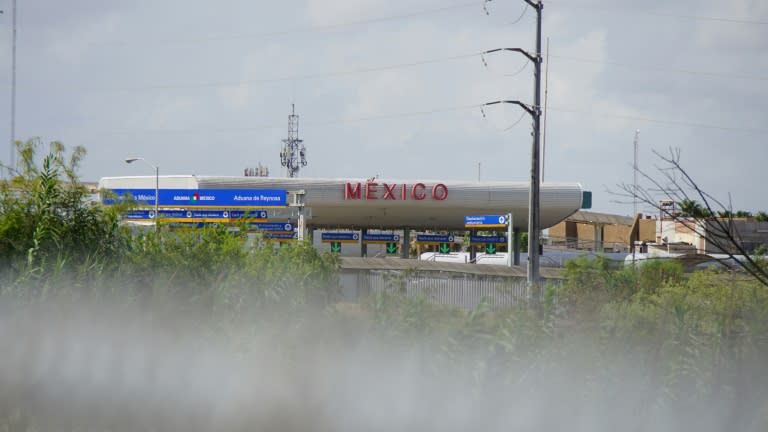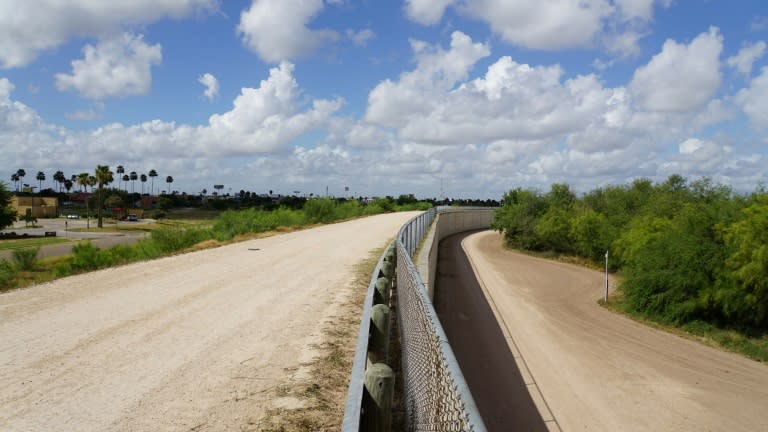Fear of separation shadows immigrant families crossing US border
When they took his son away from him at an immigrant detention center in Texas, Edilberto Garcia thought he would lose the teen forever. "I felt a lot of fear," Garcia recalled. Garcia can't stop crying, still shaken by the terrifying ordeal and the relief he felt when he got his boy back four days later. Father and son had traveled overland from Honduras so that Kevin, 17, could pursue his dream of becoming a mechanic. They crossed the chest-deep water of the Rio Grande together on Monday, but were stopped by US Border Patrol, and Kevin was separated from his father. "For me, that was one of the hardest of days because I felt I was losing my son," said Garcia, a 46-year-old textile worker. Kevin smiled and patted his father's back to console him. "I don't know where they held him. Even the younger children were taken from their parents," Garcia said. Four days later, the pair were together again in a Catholic refuge in McAllen, a poor, hot, dusty city in southeastern Texas, where the influence of Mexican culture can be seen in the quinceanera gowns and cowboy boots on display in shop windows. Garcia had never heard of US President Donald Trump's "zero tolerance" policy, which has led to 2,000 children being separated from their immigrant parents over a recent six-week period. Attorney General Jeff Sessions, who announced the new policy in May, has presented it as a deterrent to illegal immigration. "There's only one way to stop this and that is for people to stop smuggling children. Stop crossing the border illegally with your children," Sessions said in a speech on Thursday. But the process is not so simple. Manoj Govindaiah, an immigration lawyer at the Refugee and Immigrant Center for Education and Legal Services (RAICES), says the new policy is going beyond the law. "The government is taking children who have been with their parents, who are with their parents and whose parents are physically inside the United States and then changing their classification to an unaccompanied child," he charged. The parents are then placed in adult detention and the children are transferred to the custody of the Office of Refugee Resettlement, which is responsible for taking care of unaccompanied children. "It's terrifying, absolutely terrifying," he said. Some 1,500 boys are housed in a building that was once a Walmart store in Brownsville, Texas, a border town near McAllen. The government, bracing for more, plans to build camps at military bases in Texas to house additional children. The Garcias were relatively lucky: an immigration court decided quickly to move their case to Idaho, where Edilberto has a cousin, so Kevin was not sent to a camp or foster home. - Information void - Volunteers at the Humanitarian Respite Center, a refuge in McAllen, put together care packages for immigrants who have just been released: soup, infant formula, personal hygiene items and clothes. A bus arrives with 30 Mexicans and Central Americans with their children. Babies are crying as the adults disembark, wearing GPS ankle bracelets. From here, they will be sent to live with relatives in the United States. Each holds an envelope containing instructions and a message on it: "Please help me, I do not speak English. What bus do I need to take?" Misinformation and uncertainty seeps into the life of immigrants on the border like a stain. The lawyers and activists don't have ready answers because the situation is new and changing. "Those families that actually get permission to travel and they are able to come here, those families will reunite with those kids. They will be allowed to go together as a family unit," said Norma Pimentel, a nun who runs the refuge. But she adds that most children who are separated will not be returned while their parents are being processed for entering the country. "It is a very cruel action to use a child's pain to send a message of deterrence. It's not good, it's not right," she says. On May 31, lawyers and NGOs led by the Texas Civil Rights Project asked members states of the Inter-American Commission on Human Rights, a body of the Organization of American States, to take action against what they regard as "torture." - Asylum seekers - US authorities avoid the press, adding to the uncertainty. Spokespeople for US Immigration and Customs Enforcement and Border Patrol did not respond to repeated requests for information by AFP. A spokesman for the Department of Health and Human Services, which is responsible for the children, declined to discuss the issue. Under the "zero tolerance" policy, lawyers say, immigrants who request asylum are being separated from their children, along with those who enter the country illegally, even though the former have committed no crime. Govindaiah notes that it is not illegal to request asylum, but to do so one has to do some from a border point. "This is the way you seek asylum, you flee to another place and you ask for it. Our law requires people to do this and then we are penalizing them for doing it," he said. Sessions and HHS Secretary Alex Azar maintain that only those who enter the country illegally are detained. But the lawyers say that is not true. The Migrant Center for Human Rights, for example, is handling the case of a Guatemalan who asked for asylum in Texas but was detained and separated from his three daughters. "Prosecuting asylum seekers for illegal entry has exponentially increased family separation," said lawyer Sara Ramey. "Forcibly taking children without letting the parents know where their children are being held and if they are okay, and not telling the children what is happening, is one of the most disturbing aspects of this policy and legally constitutes enforced disappearance and torture under both domestic and international law."






